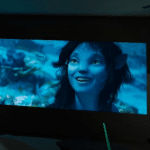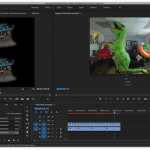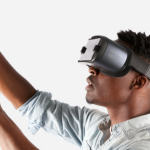Meta introduces more affordable Quest 3S headset

Meta has introduced the Quest 3S, a more budget-friendly addition to its mixed reality headset lineup. Announced at the Connect event, the Quest 3S offers the same performance and mixed reality capabilities as the Quest 3, but at a lower price. Starting at $299.99, the device targets newcomers to mixed reality or users seeking an affordable upgrade from earlier models like Quest or Quest 2.
The Quest 3S includes features such as watching TV on a virtual large screen, personal fitness training, and multitasking capabilities. The headset builds on the Quest 3’s foundation, which introduced full-color Passthrough for blending the virtual and physical worlds. Meta continues to make improvements to its mixed reality ecosystem, with the Quest 3S benefiting from updates like enhanced spatial audio and improved contrast and color for a more realistic Passthrough experience.
Meta introduces Horizon OS

In what appears to be a response to Apple's recent success with the Vision Pro, Meta has unveiled its own open computing initiative with the introduction of Meta Horizon OS. This new mixed reality operating system is part of Meta's strategy to recover ground in the rapidly evolving metaverse sector, where Apple has set a high standard.
Meta Horizon OS will be the backbone for a series of new devices from major tech players like ASUS, Lenovo, and Xbox. These collaborations seem to be Meta's attempt to broaden its ecosystem and challenge Apple's dominance. ASUS's Republic of Gamers, for instance, will develop a performance gaming headset, tapping into the gaming market where Apple's presence is less pronounced. Lenovo is poised to leverage its past collaboration on Oculus Rift S and its hardware prowess to create mixed reality devices aimed at productivity and entertainment, sectors where Apple's Vision Pro has made significant inroads.
Windows Mixed Reality is the latest for the chop as Microsoft ditches VR in favor of AI

In a move that will -- or at least should -- surprise very few people, Microsoft has announced that it is dropping Windows Mixed Reality. It will be removed from a future release of Windows.
Having already apparently given up on its HoloLens range, Microsoft appears to have come to the same conclusion that many reached some time ago: VR and augmented reality were phases that people have simply lost interest in. With the company now heavily invested in AI, it will no doubt be hoping that this is something that remains popular for rather longer.
Universal Media Server 13.0 unveils 2D-to-3D video conversion for use with VR headsets

Universal Media Server 13.0 has received its first minor update since its initial release during the busy holiday season. Universal Media Server 13.0.1 is largely a bug-fix release, but builds on the landmark 13.0 release, which unveiled an on-the-fly 2D-to-3D converter for standard videos.
Aimed primarily at those viewing video through a VR headset and associated VR media player, the 2D-to-3D converter works during playback to convert standard 2D videos to 3D. The feature requires a PC with a suitably powerful GPU acting as the server along with a suitably fast Wi-Fi connection (AX1800 Wi-Fi 6 was used during testing).
What is the business metaverse and why should enterprises care? [Q&A]

The metaverse has triggered something of a buzz in recent months, particularly among big tech companies and wealthy investors.
But while the idea of a virtual world might be compelling for consumers, what does it mean for enterprises? We spoke to Nadir Ali, CEO of Inpixon to find out.
Here's how to watch the Tokyo Olympics in VR

The 2020 Tokyo Summer Olympics are shaping up to be one of the most unusual in Olympic history for many reasons, not the least of which is the fact that public spectators will not be allowed at any of the events (yeah, and the fact that the 2020 Olympics are happening in 2021).
And even though this won't be the first time that Olympics content will be available in VR, it is a particularly relevant way to experience the 17 days of international matchups this year -- if you still have a standard cable subscription.
Cybershoes for Oculus Quest now available to buy on Amazon

If you suffer from motion sickness in VR games, or you just want to feel more like you’re "there", then Cybershoes offers a possible solution.
They are smart overshoes that you use to walk or run through virtual games, and are compatible with most of the popular VR headsets, including the Quest 2. You can read my review of them here. If you’ve been tempted to buy them but haven't yet got around to it, the good news is they are now being sold on Amazon in the US.
Can Cybershoes cure my motion sickness on Oculus Quest 2? [Review]

I’ve long been a big fan of virtual reality and have been playing more VR games than ever this past year thanks to lockdown and the arrival of the Oculus Quest 2.
The best thing about this VR headset is it’s wireless, so you have the freedom of movement you don’t get with other devices. There’s a good selection of games available to buy and install on the headset too, with personal favorites being Climb 2, Pistol Whip, Superhot VR, and Arizona Sunshine. You can also play games installed on your PC, like Half Life: Alyx, via either a compatible USB-C cable or the recently updated Virtual Desktop app.
10 emerging technologies in 2021

Despite an inarguably terrible year and many concerning events happening around the world -- pandemic notwithstanding -- technology is still advancing at breakneck speeds. That looks to continue well into the coming year, with many fascinating and emergent solutions bubbling to the surface.
Here are 10 emerging technologies everyone should be on the lookout for in 2021:
Oculus Quest 2 delivers the next generation of all-in-one VR

If you’ve wanted to embrace VR but have yet to be convinced by the headsets on offer -- or just as importantly the price of the headsets on offer -- then the Facebook-owned Oculus hopes you’ll give its next generation Oculus Quest a look. And you really should.
There’s a lot to like about the new Oculus Quest 2, which takes what was good about the original and improves on it significantly, while giving it a much more affordable starting price -- just $299. That’s $100 cheaper than its predecessor.
Grand National goes virtual to give fans their racing fix

The Grand National is a highlight of the British sporting calendar. An event that prompts people who never normally bet on a horse race to venture a few pounds at the bookies or take part in a workplace sweepstake.
With this year's race canceled due to the coronavirus it looked like they might miss out, but virtual reality is coming to the rescue.
The industries that can expect to see the most from XR in the next 4 years

For many years, Virtual Reality was seen as just a futuristic concept, but in 2010, the prototype of the Oculus Rift was released, before eventually being rolled out for general consumption in 2012. Since then, other companies have followed suit, including Samsung, Sony (PlayStation) and HTC (Vive). The use of Augmented Reality has also started to rise, both in the gaming world and in many other sectors. Both technologies are now being referred to as Extended Reality (XR), and there are huge plans afoot to develop them for a range of industries.
Here are the industries that will be utilizing XR technology the most in the next four years:
Gamers waiting for virtual reality on Xbox are out of luck

Backtracking on what it said last year, Microsoft has announced that it has no plans to bring either virtual reality or mixed reality experiences to its Xbox console.
Back in March 2017, the company had said that it wanted to bring MR to Xbox users, but now it seems to have changed its mind. Microsoft has not really given any reason for the change of heart, but it has not given up completely on VR or MR.
Google releases VR180 Creator for Linux and Mac only -- sucks for you, Windows users!

When you are a Linux desktop user, it can be very frustrating when popular programs are not available for your platform. The same can be said for macOS, but to a lesser extent -- at least it has access to things like Microsoft Office and Adobe Photoshop. Like it or not, Windows often gets premium programs as an exclusive. It's not hard to see why -- on the desktop, Microsoft's operating system reigns supreme from a marketshare perspective. Developers will simply follow the money, and who can blame them?
The world is changing, however, and Microsoft's stranglehold on the software community is loosening. Consumers don't really need Windows anymore. Sure, 10 or 20 years ago it would be almost unthinkable for a typical home user to run an alternative operating system, but these days it’s totally doable. Highlighting this, today, Google releases a really cool program called "VR180 Creator." Interestingly, it is not available for Windows -- the search giant made it a Mac and Linux exclusive. Oh my.
VR is changing user experience design

Virtual reality has skyrocketed in popularity in just a few short years. Ten years ago, VR tech simply wasn’t there, and if it was, the hardware was prohibitively expensive.
Now, your smartphone can act as a VR headset. With Google Cardboard, a smartphone with VR capabilities, and a 3D printer, you can gain access to VR tech for almost no cost whatsoever.
© 1998-2024 BetaNews, Inc. All Rights Reserved. Privacy Policy - Cookie Policy.